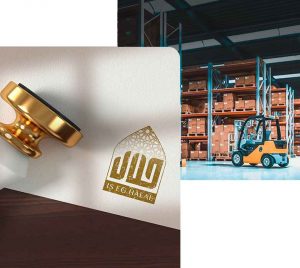
In the United States, the food industry is witnessing a significant trend: an increasing number of new food businesses are obtaining Halal certification. This shift is not just about catering to the Muslim population but also about tapping into a market that values ethical and quality food production practices. This article explores the reasons behind this trend and its implications for the food industry.
Understanding Halal Certification
Halal certification signifies that a food product complies with Islamic dietary laws. These laws dictate permissible ingredients and their processing methods. Halal foods are free from any component that Muslims are prohibited from consuming according to Islamic law (Shariah). The certification process involves inspections and audits by certified bodies to ensure compliance with these standards.
The Appeal of Halal Certification for New Businesses
For new food businesses, obtaining Halal certification has several advantages:
- Market Expansion: Halal certification opens up access to Muslim consumers, both domestically and globally.
- Ethical and Quality Standards: Many consumers, not just Muslims, view Halal certification as a mark of ethical and quality food production.
- Competitive Advantage: In a crowded market, Halal certification can differentiate a product from its competitors.
Benefits of Halal Certification for Food Businesses
| Benefit | Description | Impact on Business |
| Access to Muslim Market | Entry into a market with specific dietary needs | Increased customer base and revenue |
| Ethical Production | Alignment with ethical food processing standards | Enhanced brand image and customer trust |
| Quality Assurance | Assurance of high-quality ingredients and processes | Improved product standards and customer satisfaction |
| Global Market Access | Acceptance in countries with Halal requirements | Expansion into international markets |
| Competitive Edge | Differentiation in a diverse food market | Market advantage over non-Halal competitors |
The Process of Obtaining Halal Certification
The process of obtaining Halal certification involves several steps:
- Application: Businesses apply to a Halal certification body.
- Inspection: The certifying body conducts an inspection of the facility and processes.
- Compliance: The business must comply with the Halal requirements in its operations.
- Certification: Upon successful compliance, the certification is awarded.
The Role of Halal Certification in Branding and Marketing
The impact of Halal certification extends beyond compliance and market access; it also plays a significant role in branding and marketing strategies. For new food businesses, leveraging Halal certification in their marketing efforts can effectively communicate a commitment to inclusivity and respect for cultural diversity. This can be particularly impactful in multicultural societies like the USA, where consumers are increasingly conscious of and interested in the origins and ethical aspects of their food. By prominently displaying the Halal certification on packaging and in marketing materials, businesses can attract not only Muslim consumers but also a broader demographic that values ethical and conscientious food production practices. In this way, Halal certification becomes more than a compliance badge; it transforms into a key element of a brand’s identity and value proposition in the market.
Challenges and Considerations in Obtaining Halal Certification
While the benefits of Halal certification are clear, obtaining it can present challenges, especially for new food businesses. The process requires a thorough understanding of Halal compliance, which can involve changes in sourcing, production, and handling processes. Small businesses may face hurdles in terms of the costs involved in certification and making the necessary adjustments to their operations. Additionally, maintaining Halal certification requires ongoing compliance and periodic audits, which necessitate a continuous commitment to the standards. Despite these challenges, the long-term benefits in terms of market access and brand reputation often outweigh the initial hurdles. For businesses willing to invest in understanding and meeting Halal requirements, the certification can open doors to new opportunities and contribute to sustainable business growth.
Why Halal Certification is Useful for Food Businesses
Halal certification is not just a label; it’s a commitment to quality and ethical practices. It assures consumers that the food they are consuming meets specific standards of preparation and ingredient sourcing. For businesses, this certification can be a critical factor in building consumer trust and loyalty, particularly in culturally diverse markets.
A Strategic Move for Growth and Diversification
For new food businesses in the USA, obtaining Halal certification is becoming a strategic move for growth and diversification. It reflects an understanding of the changing demographics and consumer preferences, and a willingness to adapt to these changes. As the demand for Halal-certified products continues to grow, we can expect to see more businesses embracing this certification, making it a standard practice in the food industry.



